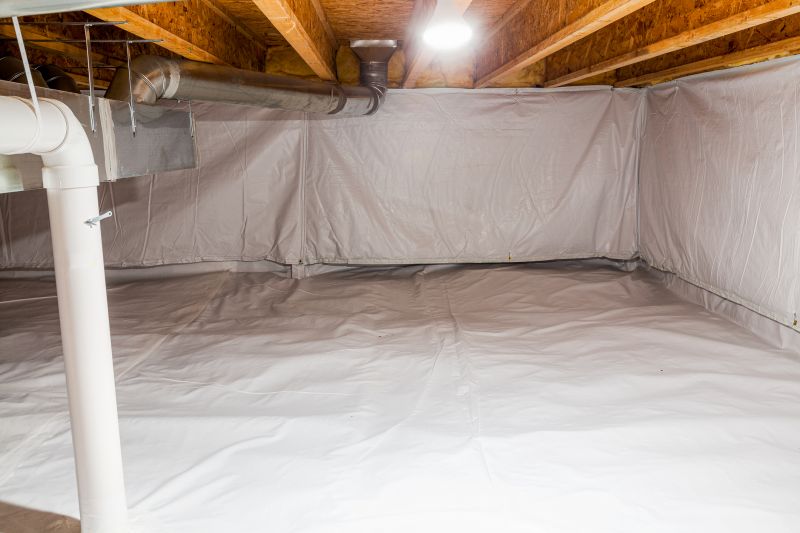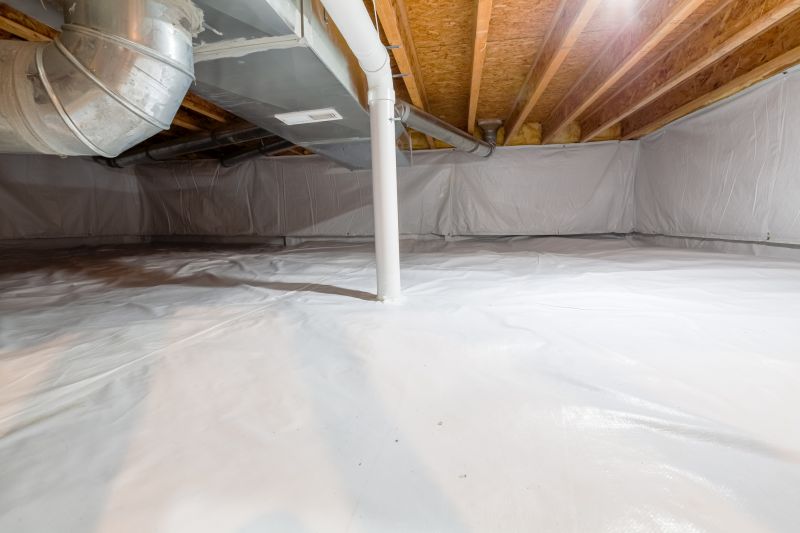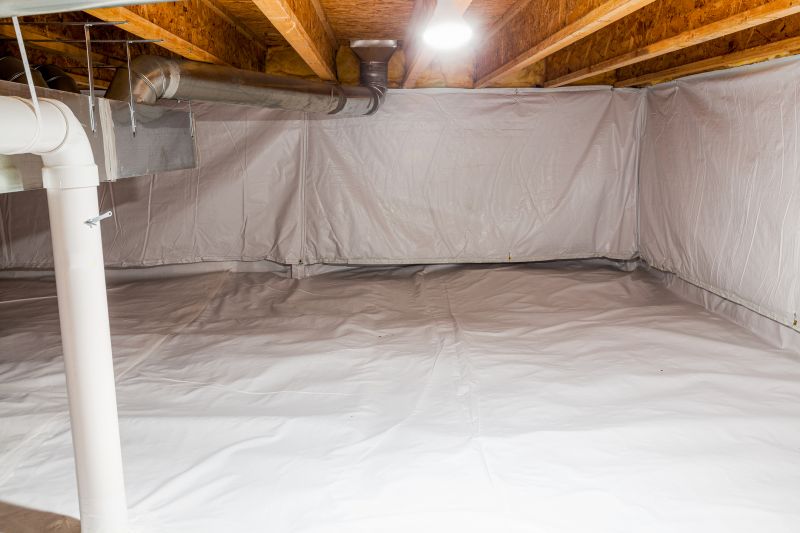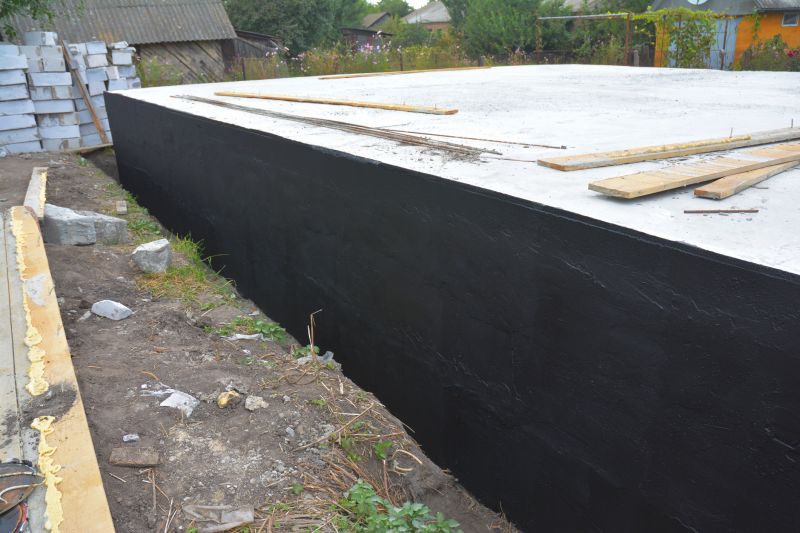Enhance Your Home’s Value with Professional Crawlspace Care
Crawlspace encapsulation offers a comprehensive solution to improve indoor air quality, prevent moisture issues, and protect structural integrity. Proper encapsulation involves sealing the crawlspace with a vapor barrier, insulating, and installing a dehumidification system to maintain optimal conditions. This service is essential for homeowners seeking to enhance comfort and reduce energy costs while safeguarding their property.
Encapsulation prevents excess moisture from entering the crawlspace, reducing mold growth and wood rot, which can compromise the foundation.
A sealed crawlspace minimizes air leaks, leading to lower heating and cooling costs and improved home energy performance.
Reducing mold and dust mites in the crawlspace helps improve indoor air quality, contributing to healthier living environments.

Image of a fully encapsulated crawlspace showing clean, sealed environment with vapor barrier and insulation.

Photo of a finished crawlspace with insulation and vapor barrier installed to prevent moisture intrusion.

Image depicting the sealing process, including vapor barrier installation over the entire crawlspace floor.

Another view of a completed crawlspace encapsulation demonstrating the tidy and protected space.
Failing to encapsulate a crawlspace can lead to significant problems, including increased mold growth, structural damage, and higher energy bills. Unsealed crawlspaces allow moisture to seep in, creating an environment conducive to mold, pests, and wood rot. Studies indicate that properly encapsulated crawlspaces can reduce indoor humidity levels by up to 50%, significantly decreasing the risk of mold and mildew. Additionally, homes with encapsulation systems often experience energy savings of 10-15%, due to reduced load on heating and cooling systems.
| Dangers of Not Encapsulating | Benefits of Encapsulation |
|---|---|
| Increased mold growth | Reduces mold and mildew risk |
| Higher energy costs | Improves energy efficiency |
| Structural damage from moisture | Protects foundation and wood components |
| Pest infestations | Creates a pest-resistant environment |
| Poor indoor air quality | Enhances indoor air health |
| Wood rot and decay | Prevents structural deterioration |
| Higher utility bills | Lowers energy expenses |


